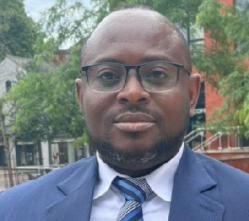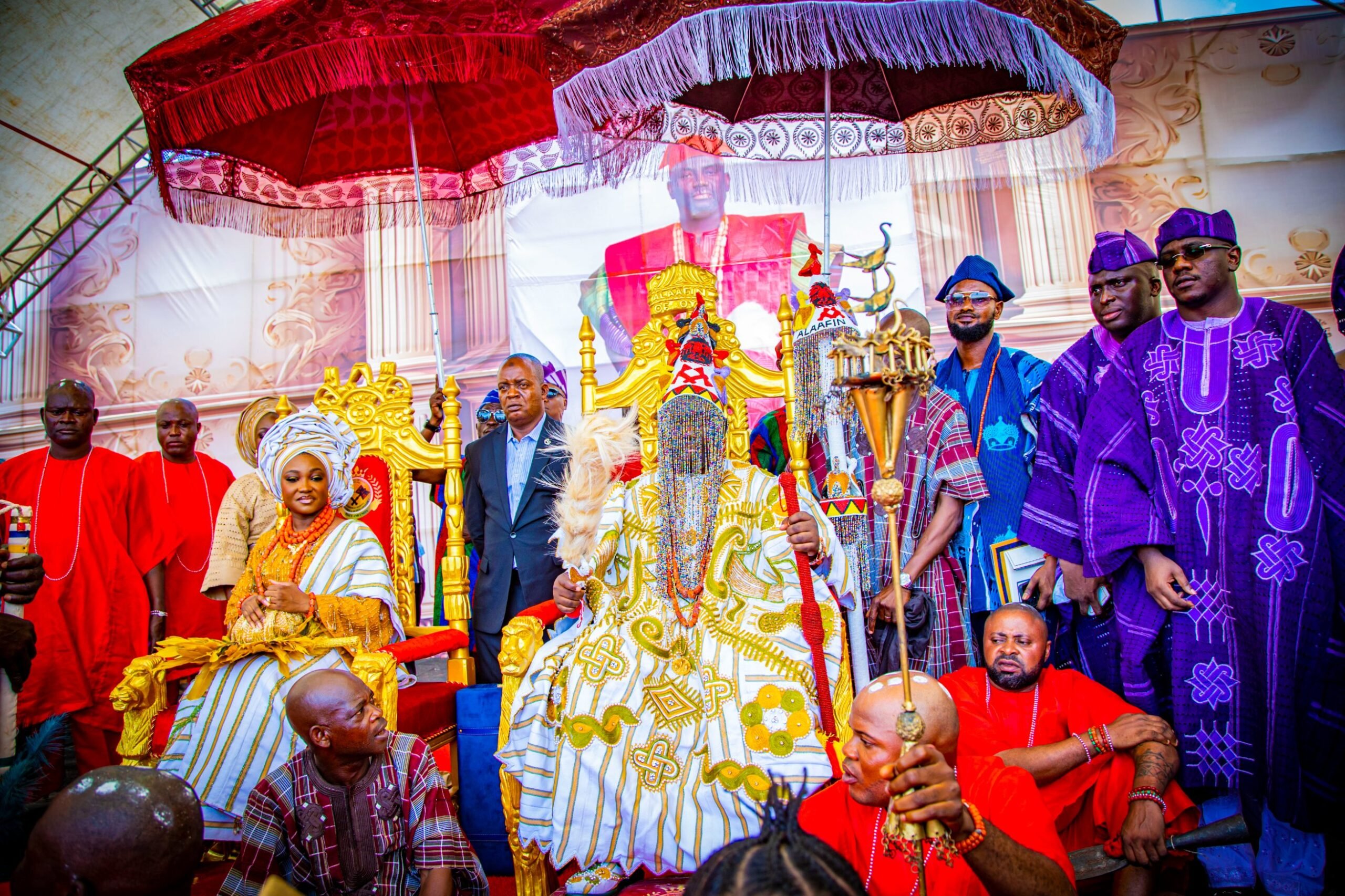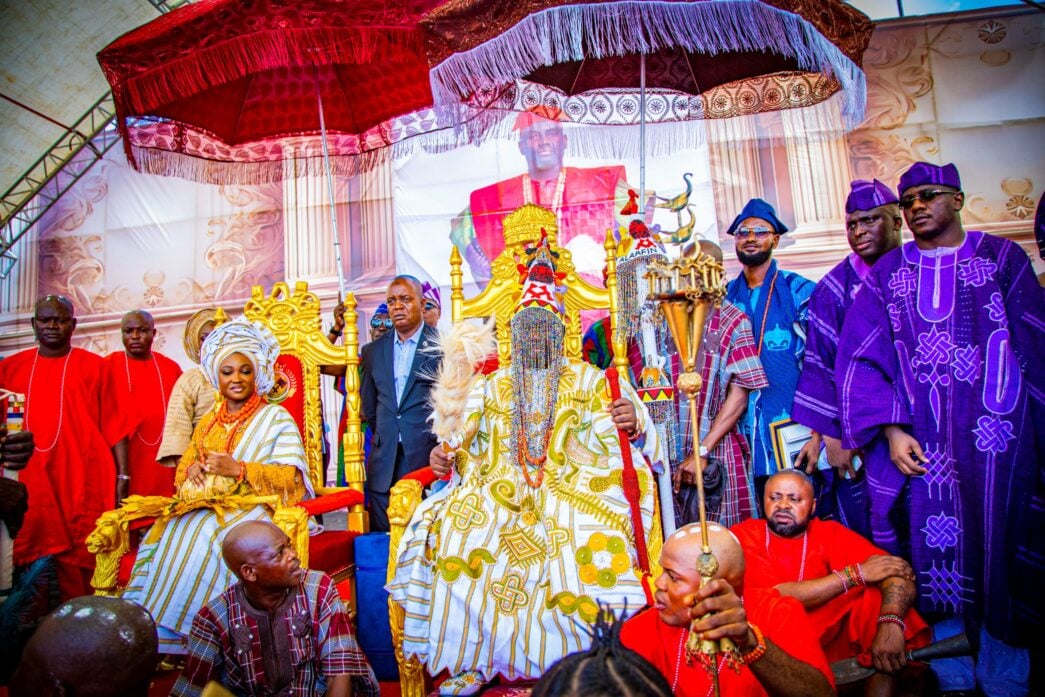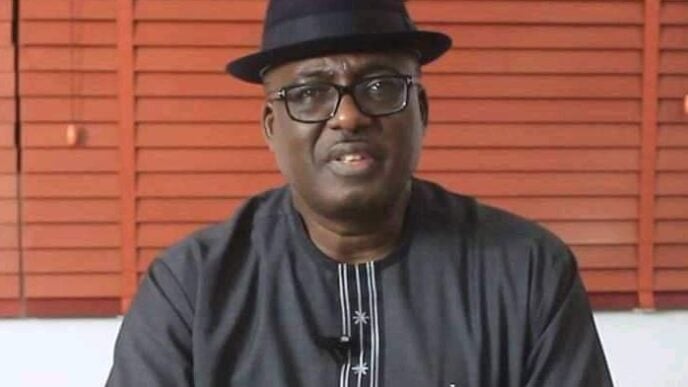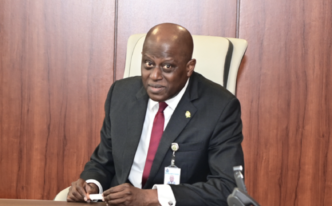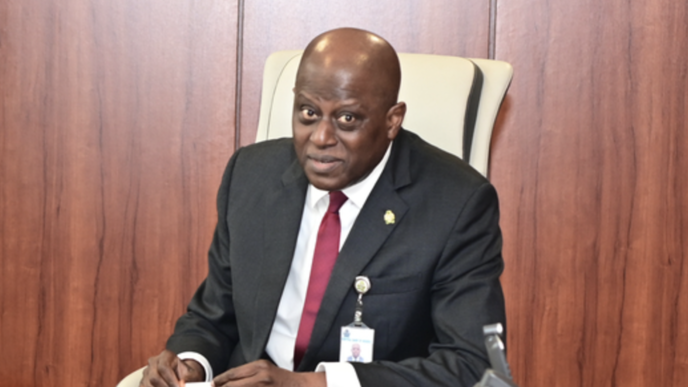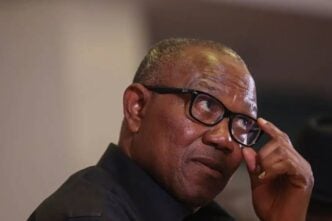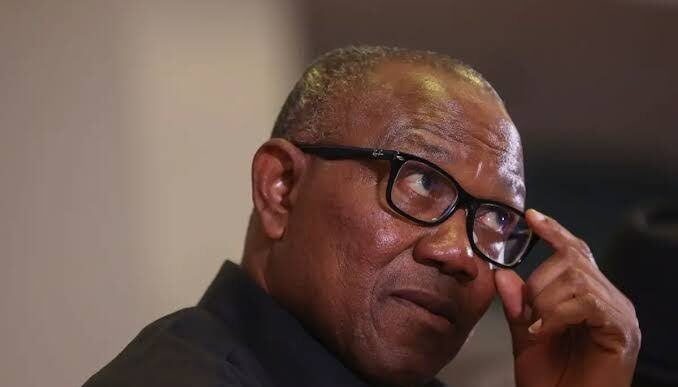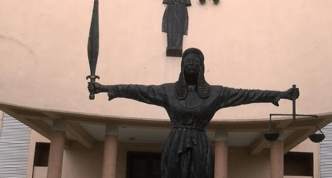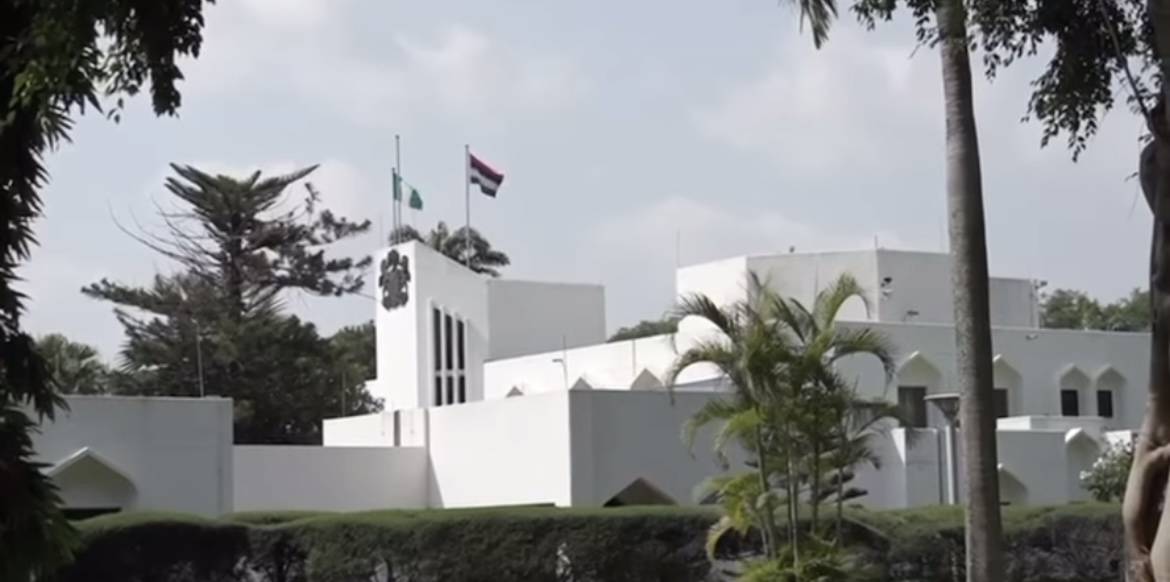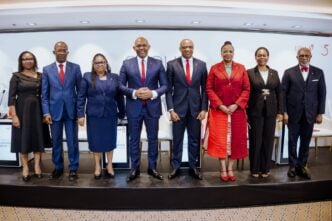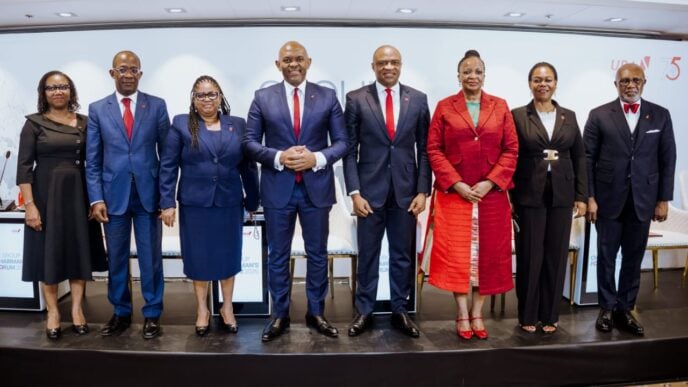Alaafin Of Oyo
This article was necessitated by the events that took place on Tuesday, April 29, 2025, when the newly installed Alaafin of Oyo refused to stand up to greet the Ooni of Ife, Oba Adeyeye Ogunwusi, who had approached to exchange pleasantries with him and other monarchs at a programme organised by Nigeria’s First Lady, Oluremi Tinubu, in Ibadan, Oyo State. In a video that went viral on social media, the Alaafin remained seated and greeted the Ooni casually, while other traditional rulers stood up to shake hands with Oba Adeyeye.
I first saw the viral video on the Facebook profile of Adedamola Adetayo, a ‘ThinkYorubaFirst’ cultural ambassador. He captioned the video, ‘This is very bad optics. Indefensible. It’s a bad omen for Yorubaland.’
As expected, many latter-day historians weighed in on the matter. While some argued that the Alaafin disrespected the Ooni, who is acknowledged to be the spiritual head of the Yoruba race, others claimed that once seated at an event, it is a taboo for an Alaafin to stand up to greet anyone, no matter how highly placed that person was in the society. However, at that same event, the Alaafin was seen standing up to greet the First Lady, Mrs Oluremi Tinubu, and the Oyo state governor, Seyi Makinde.
The Alaafin’s personal assistant, Kolade Oladele, saw nothing wrong in the video. When asked for his reaction, he gave a lame, tepid and watery excuse, saying those reading meaning into the issues are making deliberate attempts to sow discord among Yoruba traditional rulers and distracting them from focusing on more pressing issues affecting the region, including insecurity, economic hardship, and youth development.
Advertisement
As a political expert whose knowledge of historical facts is limited, I couldn’t fault those who saw nothing wrong in the Alaafin’s action at the said event. However, deep down within me, I knew something was amiss, given the body language of the Alaafin and the way he fixed his gaze to the ground while the Ooni was walking to him to exchange pleasantries.
A few days later, the media became awash with reports that there was indeed a simmering rift between the two respected Yoruba monarchs which started in March 2025 when the Alaafin was doing his Ipebi (seclusion rites). The bone of contention was Oyotunji African Village in Beaufort County, South Carolina, United States. There were reports that the Ooni of Ife had always crowned the monarchs in the village, but the new Alaafin believed that the place was an Oyo territory and not Osun; therefore, the Ooni should not interfere in matters relating to the village.
Matters took a disturbing turn when it was reported that a Yoruba traditional ruler based in the United States, Chief Lukman Ojora Arounfale, the Baba Oba of Oyotunji African Village in South Carolina, was allegedly beaten at the palace of the Alaafin over the Oyotunji issue, and this led to his death. As usual, the Alaafin has denied any knowledge of the incident.
Advertisement
I find these developments so disturbing, especially for a monarch that was coronated just a month ago. Lest we forget, the ascension of Oba Owoade to the prestigious throne is currently being challenged in court by one of the contestants, Prince Lukman Gbadegesin. Also, five out of seven Oyomesis (kingmakers) said he was not their choice. They claimed they recommended Gbadegesin for the role. However, on January 10, Governor Makinde disapproved of their choice and presented Owoade with the staff of office as the new Alaafin. The governor even accused the kingmakers of collecting bribes and threatened to prosecute them. In the days of yore, the Oyo Mesi was made up of the most powerful noblemen in imperial Oyo. They constituted the electoral council and possess the legislative powers to carry out their duty. The seven councillors are (1) Bashorun, (2) Agbaakin, (3) Samu, (4) Alapinni, (5) Laguna, (6) Akiniku (7) Ashipa. No emperor, or Alaafin of Oyo, was capable of being enthroned in the capital without the prior consent of and performance of rituals by these seven titleholders. However, in today’s world, the government is the ‘Oyomesi’, and any other kingmaker who questions the authority of the constituted authority will have himself to blame.
Honestly, I don’t know the basis upon which the new Alaafin will see himself as co-equal with the Ooni. It beats my imagination how a king who was crowned in 2025 will be claiming rivalry with a monarch that was coronated in 2015. If you won’t respect his age, at least show respect for the fact that he is your senior. There is no basis for any rivalry whatsoever. Maybe such rivalry existed in times past when the monarchs were warlords, but with the advent of civilisation, the government recognises the Ooni of Ife over the Alaafin. While they are both highly respected and first-class monarchs, from the perspective of the federal government, the Ooni, being the spiritual head of the entire Yoruba race, is considered as the head of all Southern monarchs, just as the Sultan of Sokoto is considered as the head of all royal fathers in the North. It is just like the Emir of Kano or Emir of Borno dragging superiority with the Sultan of Sokoto.
A few days ago, many Yoruba people were shocked with the statement credited to the Oluwo of Iwo, Oba Abdulrosheed Akanbi, in which he accused the Ooni of Ife of plotting his downfall after he (Oluwo) helped him (Ooni) to mount the throne. But for the maturity and calm disposition of the Ooni, the matter would have degenerated into a major conflict. I would have expected Alaafin Owoade to use his position to broker peace not just between the two monarchs but also other royal fathers in the South-West. I wanted an Alaafin that will prioritise the need for Yoruba unity so as to jointly confront the myriads of challenges confronting us as a race and lead the Yoruba to national pre-eminence.
What are the roles of traditional rulers in modern-day Nigeria? Can the society survive without them? The answer is neither here nor there. To the government, the traditional rulers are non-state actors who exist at the pleasures of the politicians and can be dispensed with anytime. To the culturalists, the royal fathers are essential for the preservation of our culture and traditions. Alaafin Owoade should know that his title today is just ceremonial. In the olden days, an Alaafin could pronounce death on any of his subjects, and no one dared to question him. That is why they bear names and appellations such as Kabiyesi, which means the king no one can question; Iku Baba Yeye, meaning the one who can command death or pronounce the same upon his father or mother or he who is parent to death; and Alashe Ekeji Orisha, which means he who wields authority and is second-in-command to the gods.
Advertisement
Unlike in times past when the royal fathers were the governing authority, the Alaafin today cannot pronounce death on any of the subjects under his domain; that responsibility lies with the courts or judicial arm of government. Yorubas have a saying in the past, and it goes thus: ‘Oba loni ile; Oba ba lori ohun gbogbo (The king owns the land; the king rules over the affairs of everything). Any king who tries such in today’s Nigeria will have himself to blame.
Just last month, the Ogun State Government arraigned the Olu of Obafemi, Oba Taofeek Owolabi, before Justice Sunday Adeniyi of the state High Court, Abeokuta, for land grabbing. Oba Owolabi, a member of the Egba Traditional Council, is currently on suspension over the same allegation. In a statement by the Ministry of Justice, the royal father was said to have been arraigned on Tuesday “for conspiracy to sell property without authority, sale of property without authority, unlawful use of agents, forceful takeover of land, assault of a police officer, and obtaining by false pretence.” Apparently, the monarch thinks he has the powers wielded by his forefathers on the throne, forgetting that his position is just ceremonial. Also last month, Governor Monday Okpebholo of Edo State dethroned two traditional rulers—one over alleged complicity in kidnapping and another due to irregular appointment procedures.
In August 2008, the Alake of Egbaland, Adedotun Gbadebo, had to beg for forgiveness when the then state government, led by Gbenga Daniel, threatened to dethrone him based on his public lament on the bad condition of roads in Abeokuta.
I was one of the journalists who interviewed Iba Gani Adams, the 15th Aare Ona Kakanfo of Yorubaland, in 2017 when he was announced as the Aare. As a highly revered generalissimo who led many battles with the Oodua Peoples Congress as its national coordinator, we asked if he would use his position as Aare Ona Kakanfo to lead the Yoruba to war. His response: “The position in the past meant that you had to continually fight wars to protect your people and may be killed in the process, but that was before Nigeria became a sovereign nation. The job in the modern era is limited in terms of physical defence because there are security apparatuses to settle disputes.”
Advertisement
The new Alalafin, Oba Owoade, should know that he is occupying a privileged position, ordained by God with the support of Governor Makinde. Prince Gbadegesin could have been on the throne today if the kingmakers had their way. As a royal father of repute, Oba Owoade must use his position to promote peace, not just among fellow Obas but among the entire Yoruba race. As one of the fathers of the Yoruba race, he must use his native wisdom and intelligence to proffer solutions and advise the government on how to deal with some of the intractable problems in the South-West region.
Having squabbles with a fellow monarch over a territory in faraway United States, less than a month after you are crowned is not ideal. The Oba will also do well to know his limits as a modern-day Oba and not view himself as an emperor in times past. He may incur the wrath of the state government if he does that. The same white whiteman who made the pencil also made the eraser to strike out whatsoever was written by the pencil.
Advertisement
Lastly, I must commend the Ooni of Ife for the equanimity with which he has borne some of the unprovoked attacks against him. If the Ooni had responded in like manner to some of the statements and actions made against it, it may have degenerated into a major conflict, as the media and bloggers will feast on it and blow it out of proportion.
No matter his deified or apotheosis status, the Ooni is still a human and is bound to make mistakes. When such happens, we must respect his sacred office and crown (Tadenikawo). For those accusing the Ooni of making himself too accessible by attending all manners of events, that is an infantile way of reasoning. In fact, the Ooni should attend more events where he can showcase the rich Yoruba and African culture which he embodies to the public. The Ooni of today is not a statue that will sit in his palace, expecting people to come and pay homage to him. The fact that he makes himself accessible is not a licence for anyone to ridicule his personality or his crown. As the saying goes, ‘The gentility of a lion is not a sign of cowardice.’ Those who desecrated or attempted to ridicule the crown of the Ooni, unprovoked, all paid for it. If in doubt, ask the Oba of Lagos, Naomi Silekunola; Sunday Igboho; Dr. Rahmon Adedoyin, self-acclaimed investigative journalist; Bristol Issac Tamunobifiri @PidomNigeria and others.
Advertisement
I enjoin the new Alaafin, Oba Owoade, the Ooni of Ife, the Oluwo of Iwo and other royal fathers to bury their hatchets, join hands together and pray for the peace, progress and stability of the Yoruba race rather than continue the age-long tradition of superiority battles. Like Wale Ojo-Lanre said “What the time demands is not a return to the fragmented glory of ancient pride but a renewal of Yoruba unity. If the Alaafin represents the strength of Oyo and the Ooni symbolises the spiritual bedrock of Ife, then together, they must weave the fabric of Yoruba resurgence. Ego and envy cannot build a future. Respect and cooperation can”.
Akinsuyi, former group politics editor of Daily Independent, studies sustainability communications strategies at the London School of Economics and Political Science.
Advertisement
Views expressed by contributors are strictly personal and not of TheCable.
